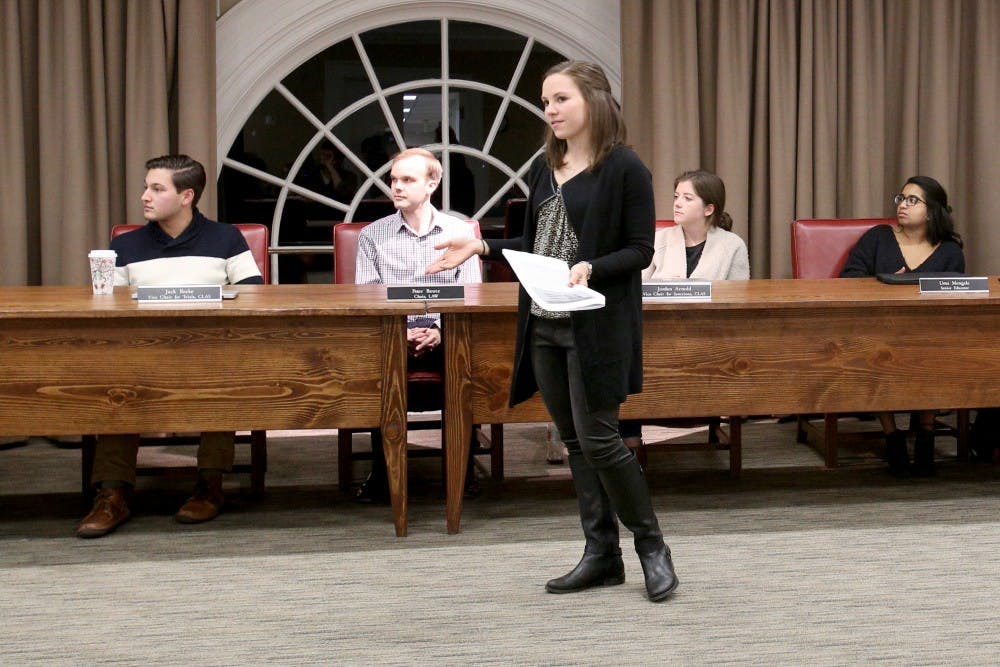The University Judiciary Committee held its last meeting of the semester Sunday night and gathered to hear a presentation on hazing education and prevention by the Positive Organizations Expectations program.
Peter Bautz, third-year Law student and UJC chair, introduced the guest speakers for the presentation, as well as stated the goal for UJC — to learn more about hazing cases and how to identify situations when hazing has occurred.
“[This presentation will have] an eye towards how we can identify [hazing] and some of the tips and suggestions on what we can do when we are sanctioning students in hazing cases,” Bautz said.
The interactive presentation was led by guest speakers Rachel Kiliany, the program coordinator for Prevention in the Office of the Dean of Students, and Amy Ackerman, a Positive Expectations facilitator as well as a 2017 University graduate and the former Sanctions chair for the UJC. Ackerman said she wanted UJC to learn more about hazing and gain a better understanding as they deal with similar issues related to this problem.
“I just felt like more education is always important and you can always continue to learn, and having dealt with hazing cases in the past, I felt like there was so much more for people to consider,” Ackerman said.
They began their presentation by defining what hazing was and then transitioned by asking the group about scenarios and whether or not a particular situation was a low, moderate or high example of hazing. This exercise involved many opinions about the definition of hazing and provided opportunities for UJC members to give their own definitions and perspectives.
In another exercise, Ackerman and Kiliany read another example of hazing, “Hidden Harm,” in which the situation explained a football player with a hard childhood who began experiencing hazing in college and became fearful of losing his scholarship.
“It’s absolutely essential that we don’t dismiss hazing as something that only affects people that have dealt with traumatic experiences,” Ackerman said. “We all can be affected by hazing, we all have different breaking points.”
This presentation was especially unique considering that a CIO was learning about hazing prevention, an issue that usually is only taught within fraternal organizations, according to Kiliany.
“For our fraternal organizations, they have [a Fraternal Organization Agreement] — it’s an easier way to get in front of them … because they have to every year do something related to hazing education,” Kiliany said. “Whereas CIOs, that’s also tough because it is [many] of them, so we have a tougher time reaching [them],” Kiliany said.
Kiliany and Ackerman gave tips on how to prevent future hazing, such as reporting the group initiating the hazing and requesting more prevention presentations for other organizations. Kiliany stated the benefits of having an organization’s member facilitate the conversation on prevention presentations, in lieu of having an outsider provide information.
“It’s always better to have someone from your organization,” Kiliany said. “That always works better than if an outsider comes in and presents.”
In the end, more research and awareness is still needed to better understand hazing and prevention, but CIOs such as the UJC are making strides to be better informed.
“Where we are with hazing is where we were with sexual harassment 30 years ago, but we’ll get there,” Kiliany said.







